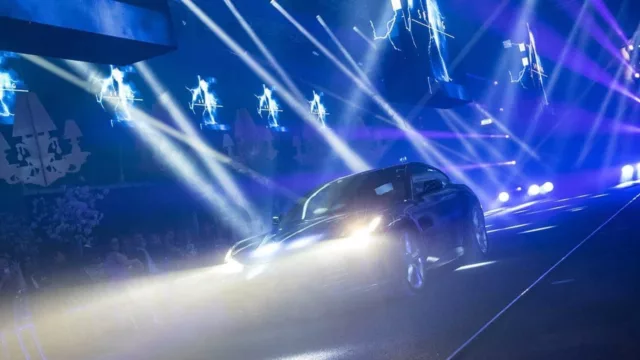
The Indian state of Kerala shows leadership in the creation and establishment of hydrogen fuel cell vehicle technology worldwide. Kerala advances hydrogen fuel cell technology despite major industrial supporters like China, Germany, and the United States leading various green technology sectors. The article studies Kerala’s innovative transportation programs and their effects on upcoming sustainable mobility systems.
A milestone in Indian automotive history
The state of Kerala participated in a significant achievement through the initial registration of its Toyota Mirai hydrogen vehicle in April 2022. The Ministry of Heavy Industries started an initiative through a memorandum of understanding between iCAT and Toyota to register the Toyota Mirai for studying fuel-cell electric vehicles (FCEVs). The Toyota Mirai represents an advanced technological breakthrough, which serves as Kerala’s demonstration of its environmental energy initiatives. During operation, the car’s powertrain system functions through hydrogen decomposition, which produces electricity to power motor functions, along with oxygen and water formation.
Water is the exclusive byproduct of this process, which establishes it as a highly clean technological substitute for typical internal combustion engines. Research and development activities are the main purpose of the registered Toyota Mirai. The organization will keep the vehicle at its facilities to study performance evaluation and collect data related to hydrogen fuel cell technology. The research is vital for establishing hydrogen fuel stations while helping comprehending hydrogen’s suitability as a mass fuel.
Tax exemptions and infrastructure support
The Malayali government has declared a tax exemption for hydrogen-powered cars, which serves as an additional driver in speeding up the adoption of green capabilities. The state is constructing hydrogen-filling stations for future support of hydrogen-powered vehicles throughout the territory. Researchers and early adopters find hydrogen cars in Kerala increasingly desirable because of their tax exemption. The initial steps toward building a future based on hydrogen-fueled transportation have been established.
Kerala established a new historic milestone by introducing its first hydrogen-based bus system at Cochin airport
EKA Mobility, KPIT Technologies, and BPCL officially unveiled the first hydrogen fuel cell bus of Kerala at Cochin International Airport (CIAL) in March 2025. The Proof of Concept (PoC) project consists of a 9-meter passenger bus that demonstrates public transportation using hydrogen-based fuel. These three companies combine their specific capabilities with EKA Mobility, which handles the electric bus platform development, KPIT, which provides fuel cell integration services, and BPCL, which operates the hydrogen supply systems.
The bus received significant attention at the Global Hydrogen & Renewable Energy Summit in Kochi as Kerala demonstrated its progression in environmentally friendly innovations. BPCL created the entire infrastructure for hydrogen production and fuel station operation at the airport facilities. The hydrogen fuel cell bus deployment will act as a template for future operations growth. The project works toward collecting crucial operational information and knowledge to promote the nationwide expansion of hydrogen mobility solutions across India.
India strives to develop a sustainable hydrogen transportation infrastructure that can be duplicated throughout the nation. This partnership has made one of the first major public attempts to bring hydrogen transportation to market. The state of Kerala intends to expand these system deployments throughout its urban areas and principal highways. If its technical aspects prove successful, such a pilot project holds the potential to direct national policies.
The state of Kerala has the potential to lead worldwide efforts for clean transportation
The green hydrogen policy and its environmental impact
Hydrogen fuel cell vehicles (FCEVs) implement substantial environmental advantages. A process involving hydrogen produces no emissions because it creates water vapor as its only byproduct. The only output of FCEVs is water, which serves as an effective transportation emission reducer. The statewide initiatives in Kerala work towards achieving carbon neutrality and building climate resilience in the long term.
The state administration sponsors green fuel programs through official policies. The strategy advances through the application of hydrogen technology. The government initiative involves transforming diesel buses to operate under electric and hydrogen power systems. Both environmental conservation targets and extended economic growth support these initiatives.
Kerala leads at the forefront of hydrogen fuel cell technology to establish sustainability efforts and technological improvements. An India-first model of hydrogen-powered car earned the state recognition, and they followed by launching their initial hydrogen fuel cell bus. These initiatives lower carbon emissions while generating economic value, which shows other regions how to replicate this model. The world can find hopeful sustainability solutions through Kerala’s lead role in developing hydrogen technology.
Source: coachesdatabase.com









